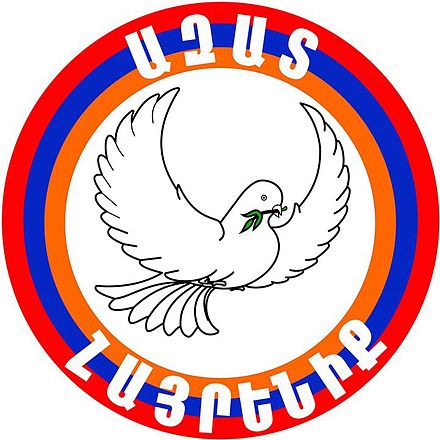Politics of Artsakh took place within the constraints of a written constitution, approved by a popular vote, that recognises three branches of government: executive, legislative and judicial. The executive branch of government was exercised within a framework of a presidential representative democratic republic, whereby the President of Artsakh was both the head of state and the head of government. The legislative branch of government was composed of both the Government and the National Assembly. Elections to the National Assembly were on the basis of a multi-party system. As of 2009, the American-based non-governmental organisation, Freedom House, ranks Artsakh above both Armenia and Azerbaijan in terms of political and civil rights.[1][2][3] The republic was de facto independent and de jure a part of Azerbaijan. None of the elections in Artsakh were recognised by international bodies such as the OSCE Minsk Group, the European Union or the Organisation of Islamic Cooperation. Both Azerbaijan and Turkey had condemned the elections and called them a source of increased tensions.[4][5][6]
Following the Azerbaijani offensive on 19 September 2023, Artsakh agreed to dissolve itself by 1 January 2024.[7]

The President was directly elected for a five-year term, by popular vote.



The National Assembly (Azgayin Zhoghov) had 33 members who were elected for a five-year term by Party-list proportional representation. Artsakh had a multi-party system, with numerous political parties in which no one party often had a chance of gaining power alone, and parties had to work with each other to form coalition governments.
Narine Narimanyan was the last Head of the Supreme Court of the Republic of Artsakh.

Below is a list of former political parties in Artsakh. The region had a multi-party system with numerous political parties, in which no one party often has a chance of gaining power alone, and parties must work with each other to form coalition governments. The following parties won seats in the National Assembly following the 31 March 2020 Artsakhian general election (total 33 seats):
The extra-parliamentary political parties which had no seats in the National Assembly, are listed below: